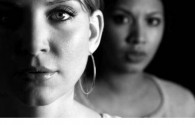Gabrielle Brown
Job description: Psychotherapist at St Mungo's
Areas of interest: Mental health and wellbeing
Gabrielle Brown's Recent Activity
"“As a psychotherapist for St Mungo's Life Works Team, some of the most horrifying stories I have heard from residents have been from women. These are often the granddaughters of women who have had adverse life experiences and it’s gone from generation to generation.”
“Sexual and other forms of abuse in childhood are so common that one almost is surprised if somebody says that that wasn’t their experience. It’s not only what was done but the environment, where other family members knew and nothing was done, which has had such a traumatic effect.”
“One of the very common experiences is women who were expected to take care of the rest of the family in a parental role from a very young age but not necessarily doing it very well. One of the hostels worked so beautifully because it had a lovely maternal manager. It took a lot of burden off the women to be mother to the men and it allowed them to be mothered a bit themselves.”
“Psychotherapy as a profession has considered that the sort of people who might end up in St Mungo's homeless hostels would not be suitable for psychotherapy. That’s not been our experience at all. People are able to make use of the therapy to build a relationship, even if they are still drinking, still using drugs, still what we would call acting out. Sometimes they have just changed their level of happiness. And sometimes people have changed their behaviours significantly.”
“We are seeing women who are trying to use their bodies in all sorts of ways, like drugs and alcohol, to cut off their memories. I think getting pregnant works in that way. When they have had very poor childhoods, many women may attempt to rewrite the story and have a child in order to be a very different mother. It’s an absolutely devastating sense of failure when it doesn’t work.”
“My team has a view that people become homeless because of a lot of psychological factors. And that homelessness itself creates a lot of psychological trauma, some of which repeats early experiences. And that both of those things need to be treated before people can settle and get back to a regular life.”
Taken from an interview for http://www.wherefromwherenow.org/ women’s homelessness photography project by Georgina Cranston donated to St Mungo’s."
Reply To: Childhood trauma and women’s homelessness
"“As a psychotherapist for St Mungo's Life Works Team, some of the most horrifying stories I have heard from residents have been from women. These are often the granddaughters of women who have had adverse life experiences and it’s gone from generation to generation.”
“Sexual and other forms of abuse in childhood are so common that one almost is surprised if somebody says that that wasn’t their experience. It’s not only what was done but the environment, where other family members knew and nothing was done, which has had such a traumatic effect.”
“One of the very common experiences is women who were expected to take care of the rest of the family in a parental role from a very young age but not necessarily doing it very well. One of the hostels worked so beautifully because it had a lovely maternal manager. It took a lot of burden off the women to be mother to the men and it allowed them to be mothered a bit themselves.”
“Psychotherapy as a profession has considered that the sort of people who might end up in St Mungo's homeless hostels would not be suitable for psychotherapy. That’s not been our experience at all. People are able to make use of the therapy to build a relationship, even if they are still drinking, still using drugs, still what we would call acting out. Sometimes they have just changed their level of happiness. And sometimes people have changed their behaviours significantly.”
“We are seeing women who are trying to use their bodies in all sorts of ways, like drugs and alcohol, to cut off their memories. I think getting pregnant works in that way. When they have had very poor childhoods, many women may attempt to rewrite the story and have a child in order to be a very different mother. It’s an absolutely devastating sense of failure when it doesn’t work.”
“My team has a view that people become homeless because of a lot of psychological factors. And that homelessness itself creates a lot of psychological trauma, some of which repeats early experiences. And that both of those things need to be treated before people can settle and get back to a regular life.”
Taken from an interview for http://www.wherefromwherenow.org/ women’s homelessness photography project by Georgina Cranston donated to St Mungo’s."
Reply To: Mental health and wellbeing




